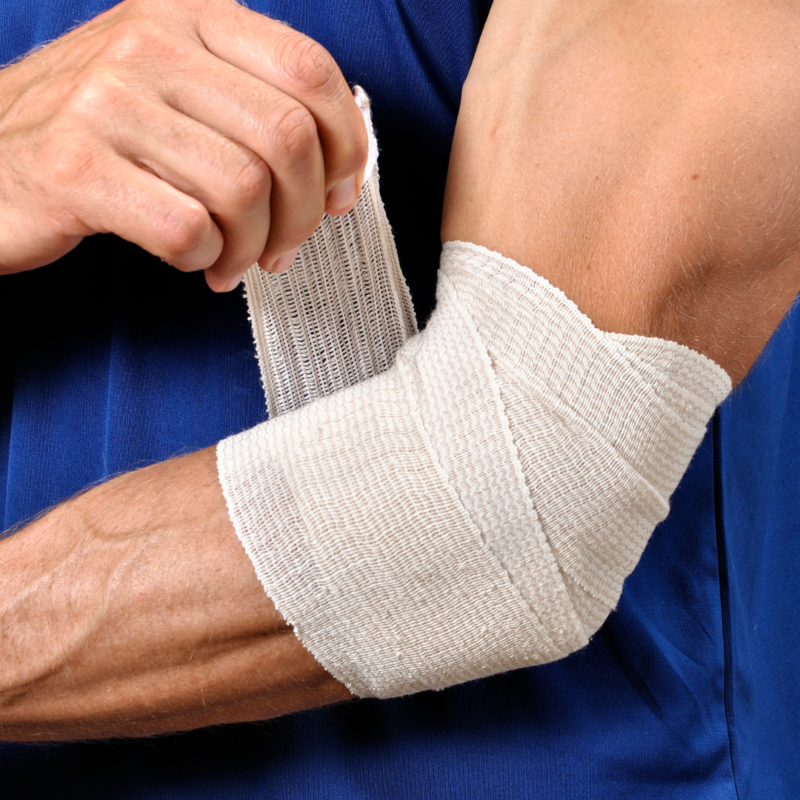
Can An Elbow Tendon Heal Itself?

A torn elbow tendon is absolutely no fun. Typically resulting from employment or sports injuries, it can be challenging to function with your arm after having the tendon break. Usually, any movement requiring the bending of the arm will be difficult at best and impossible at worst. However, if you tear your elbow tendon and think of the three words: Orthopedic Surgery NY, contact New York Sports Medicine Institute today!
What Is A Torn Elbow Tendon?
A torn elbow tendon is when the tendon linking the bicep to the forearm, or the tendon linking the tricep to the forearm, tears from the bone. Truthfully, this is uncommon, yet still possible. If you experience this injury, self-care aside, it will not heal on its own. There is no amount of rest, icing, or Advil that will reattach the tendon to the bone. Lucky for us in the modern era, there is one way to reattach the tendon: surgery.
What Is Elbow Tendon Reattachment Surgery?: Orthopedic Surgery NY
Surgery might be one of those buzzwords people shy away from, but it is necessary in this case. Simply put, the surgery seeks to reattach the tendon from the bicep or tricep to the bone. Sometimes, the loose tendon might be tied back to the bone with sutures. A doctor may tell a patient not to eat or drink anything after midnight the night before surgery. This is in order to make sure there are no anesthesia complications. Similarly, your doctor may ask you to stop taking medications that prevent or degrade blood clotting factors, such as Aspirin, Plavix, Advil, Motrin, Aleve, and Coumadin.
Not only is the surgery safe, but the recovery period is also relatively short. In roughly three to six months, any pain should evaporate. Obviously, this depends on age and how much rest the patient gets after surgery, but that is the average. A patient will also be able to return to daily activities in about two to six weeks after surgery. Full employment and sports can begin about three to twelve weeks after surgery (again, depending on age, the person, etc.). Exercises may have to go continue for about a year.
This all is not that bad relative to letting the tendon be injured. Doing so could cause permanent damage therefore if you are thinking of the three words: Orthopedic Surgery NY, contact New York Sports Medicine Institute today!
Types Of Elbow Tendon Reattachment Surgery That Can Be Done By Orthopedic Surgery NY
The first type is called “open surgery.” Basically, a cut is made above the arm on the side of your elbow. The surgeon then removes the damaged piece of the tendon and reattaches the healthy piece back to the bone. Though gross-sounding, the surgeon might even remove a piece of bone to aid in healing. This is done because the body treats broken bones as necessary to heal, thus moving nutrients to the site to reconstruct it. By proximity, the healing tendon will then likely benefit from the minor healing chip in your bone.
The second type is called “arthroscopic surgery.” For this surgery, the surgeon will make a few small cuts in the skin over your elbow. Very small tools and instruments will go into the holes, as well as a camera. The surgeon will remove the damaged portion of the tendon using the tools and instruments aided by the view of the camera. This surgery is typically minimally invasive yet still takes about the same time to heal as open surgery (as the same procedure is essentially being done).
Both surgeries are closed with stitches and staples. The wound is then dressed with bandages or the like. Because of the small area of operation, the patient will likely be able to go home the same day as their surgery. OTC painkillers like Aspirin help.
Possible Complications
As with any operation, monitor the area for infection. Contact your doctor immediately if you notice puss inflammation that seems hot to the touch or develop a fever. The surgery also minimizes the risk of damaging nerve cells and blood vessels within the elbow. The risk of that is low. Some patients will have reduced flexibility or strength. This is often a direct result of the surgery, as part of the tendon is removed. However, this specific complication is usually not a drawback for many patients.
Elbow tendon reattachment can be worrisome. However, it is not that bad. If you think of the three words: Orthopedic Surgery NY, contact New York Sports Medicine Institute today!
